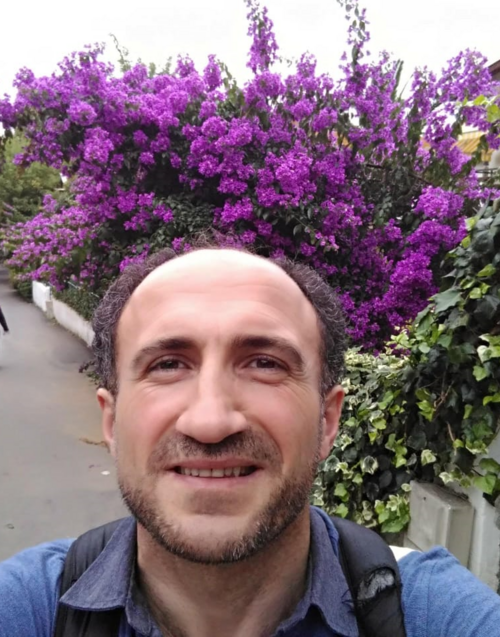Comparative Analysis of the Legal Recognition of Alevi Communities in Western Europe
Abstract
My dissertation examines the legal recognition of a religious minority, namely the migrant Alevi community in Europe with a cross-national study in eleven western European countries. It employs a comparative research design with mixed methods. The legal recognition of a faith or non-confessional community is a central aspect of religious incorporation processes in Western Europe responding to the increasing pluralization of religion, especially through migration. The existing scholarship has so far mostly studied the religious incorporation of Islam but has neglected the incorporation of Alevism. This neglect is due to a bias in the religious incorporation literature in which different Muslim communities in Europe are homogenized and subsumed under the category of “Islam”. This overlooks not only the existing plurality among different migrant groups and their religions, but also fails to explain different trajectories of religious recognition processes. My thesis addresses this gap in the literature by analyzing the struggle for recognition of a “minority within a minority.” The Alevi community of Anatolia is a persecuted, multi-ethnic (Kurdish and Turkish) religious minority from Turkey, who have gained legal recognition as a faith community in many Western European states in the last two decades. In Turkey, Alevis are officially subsumed under Islam, where the majority denomination is Sunni Islam. In Europe, however, Alevis have been seeking recognition outside of the category of Islam. While the incorporation of Sunni Islam is a highly contested topic in most European countries, the recognition of Alevism has rarely attracted public or scholarly interest. My thesis presents the first systematic comparative study that analyzes the legal recognition of Alevi communities in Western Europe and thus offers original insights into the complex layers of legal recognition processes of minority religions in Western Europe. Furthermore, it substantially contributes to the emergent scholarship on Alevis in Europe, who form an increasingly visible and powerful diasporic community in Europe. In particular, this dissertation offers three central contributions to existing scholarship. First, it establishes a cross-country database on the legal recognition of Alevism in eleven Western European states. Secondly, it tests the validity of existing theories about the religious incorporation of Islam in Western Europe (i.e., resources mobilization theory, political opportunity structure theory and state-church theory) when applied to the case of Alevis. Finally, it develops an explanatory theoretical framework to account for the diverging patterns of the legal recognition of Alevism in Western Europe. The dissertation enhances, with its original insights, sociological studies of religion, diasporas, and migration in Europe.
Keywords: Migration and diaspora studies, politics of secularism, religious pluralism and minorities, religious incorporation and legal recognition.
Supervisors: Prof. Dr. Maurus Reinkowski, Prof. Dr. Bilgin Ayata
This thesis is part of a larger research project, titled “Affective Citizenship: Religion, Migration and Belonging in Europe,” directed by Prof. Dr. Bilgin Ayata and funded by the Swiss National Science Foundation (SNSF). Please click here for further details on the research project.
My research was awarded with a completion funding of five months (06-10/2022) by the Freiwillige Akademische Gesellschaft Basel (FAG-Basel) and eight months (12/2022 – 07/2023) by the University of Basel (the Research Fund for Junior Researchers).
Short bio
“The personal is political.”
I was born in Dersim (official name is Tunceli since 1935) in the 1980s as a child of an Alevi/ Kirmanc family. My early childhood and family life were shaped by anti-peace policies of the Turkish state, which imposed the low intense war conditions in some parts of the country where Alevis and Kurds were living in majority. The news of people being killed was part of daily life; my close and distant family members were killed, like most Alevi and Kurdish persons in the area. The social history of my family had a major interruption when the Turkish state imposed forced migration to thousands of Alevi and Kurdish villages in the 1990s. In this way, my life symbolizes a collective experience of those excluded from the political majority. Yet, despite its depressing aspects, having a life of a political minority also helped me to understand and care about other forms of exclusions and oppressions based on gender, class, race and religion. I have continued listening to songs of my childhood in Kirmancki, even dared to sing them. I keep interrogating the state and its functions, roles, and effects in social and political life of all living creatures. The passing of my mother in 2020 made me revisit our common past life and relationship, as well as the violent interruptions we both experienced. Hence, in parallel to my research on Alevi institutionalization in Europe, I have been intensely reflecting on my own past, realizing how difficult but also healing and inspiring such reflections are. I have learnt a lot from stories told with intersectional curiosity of class, gender, race, religion and nationalism in sociology, anthropology, history and literature. I enjoyed learning on political and economic history (of Turkey, Ottoman Empire and Europe), economic crimes, urban economy and migration during my BA studies (Economics) at the Yildiz Technical University; as well as on European migration policy, citizenship and migration, anthropology of Europe and history of the European Union during my MA studies (European Studies) at the Sabanci University in Istanbul.
Interests: studies on migration, diaspora, culture, gender, race, class, nationalism, secularism, citizenship, religious pluralism, religious incorporation, recognition, sociology of religion, oral history, colonialism and post-colonialism, and feminism.
Membership and Solidarity
Membership and solidarity: Nesin Foundation, Nesin Villages (Maths, Art and Philosophy), Feminist Autonomous Center for Research, Research Association Switzerland-Turkey, Amargi-Feminist Dergi, Tarih Vakfı, Deep Poverty Network, Human Rights Association (Turkey), Citizens Assembly, Mor Çatı Women’s Shelter Foundation, Kadın Cinayetlerini Durduracağız Platformu, United Hands For Refugees e.V.

Serdar Kandil
PhD Candidate, Near and Middles Eastern Studies
Graduate School of Social Sciences (G3S), University of Basel
Petersplatz 14, 4051 Basel
E-mail: serdar.kandil@clutterunibas.ch
Quick Links
Social Media
